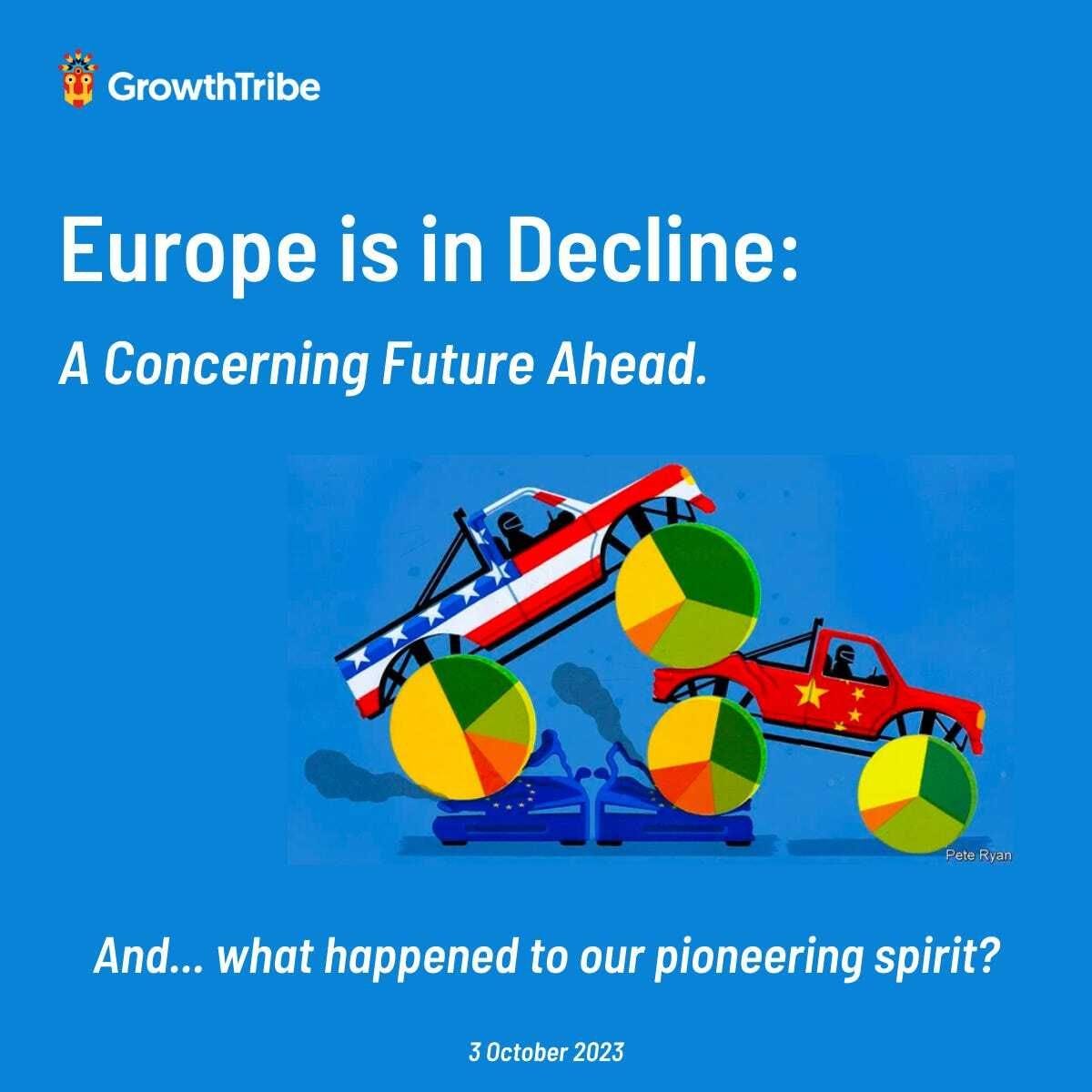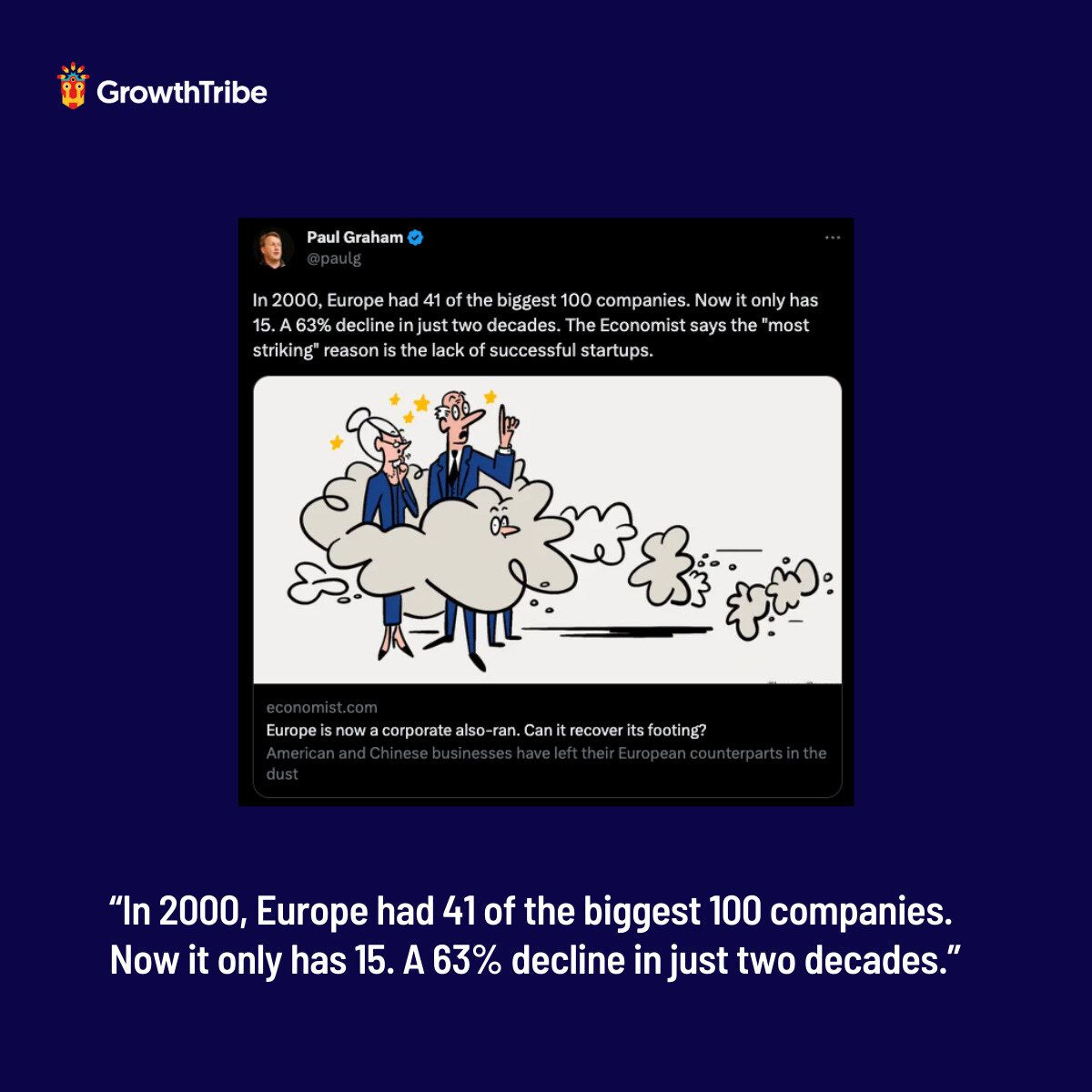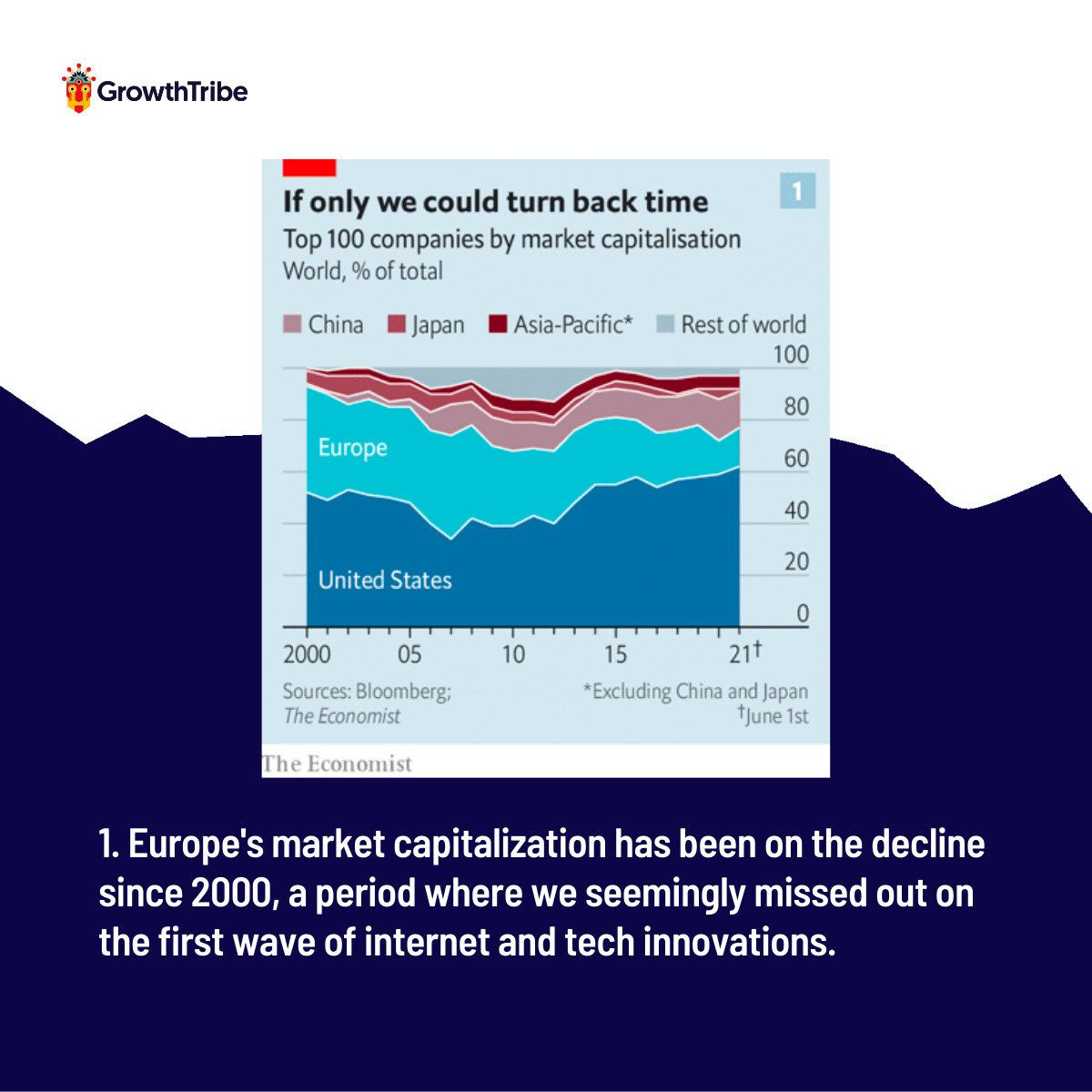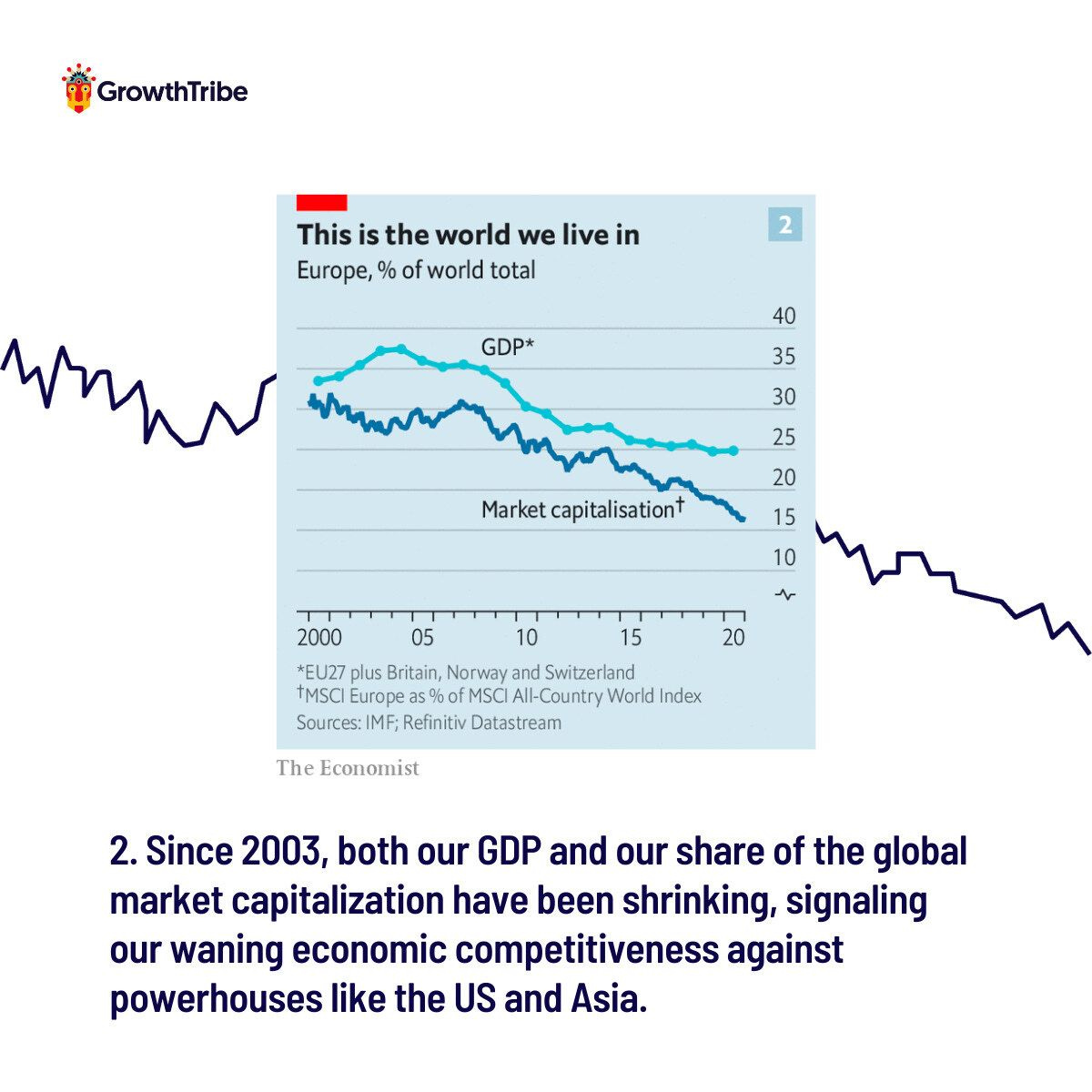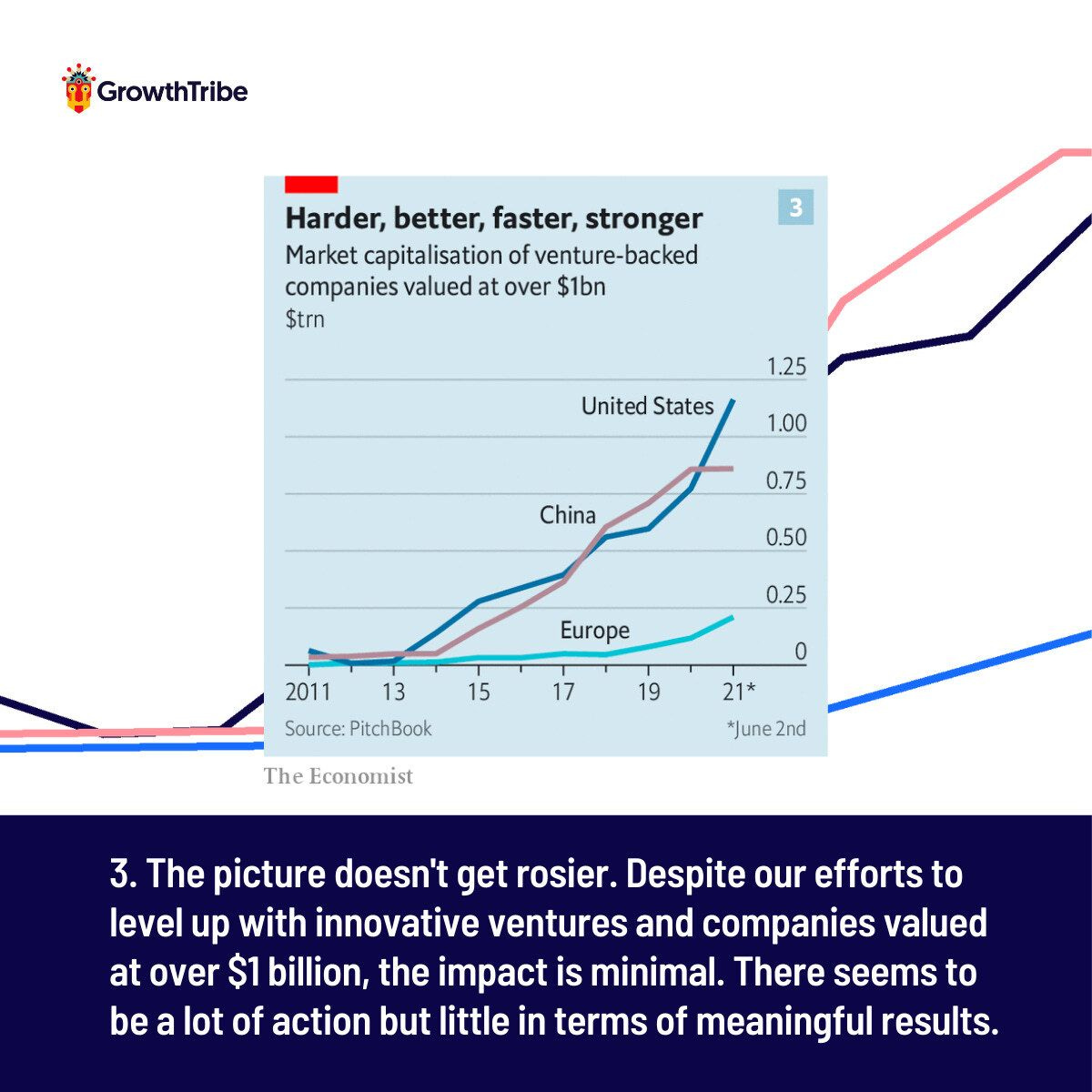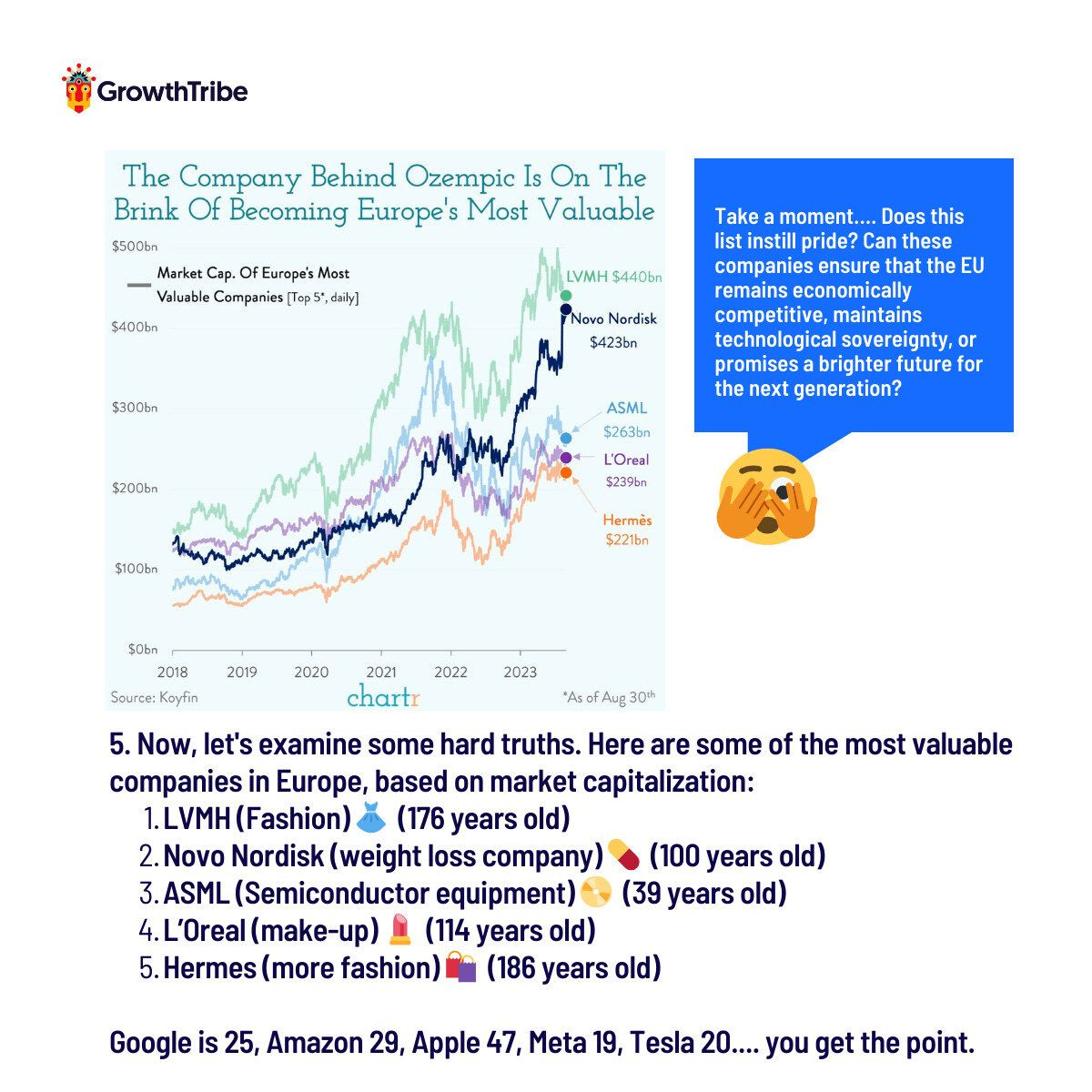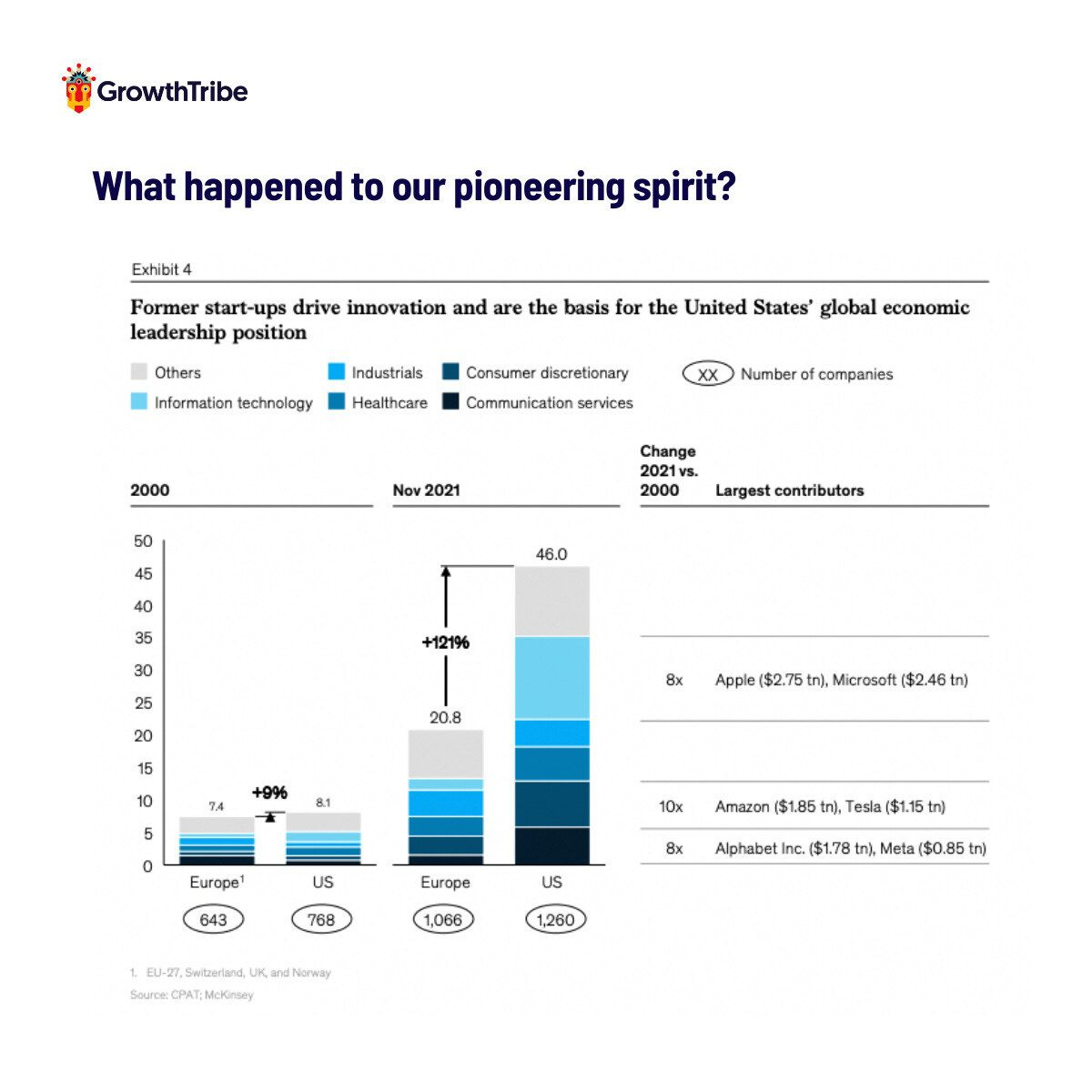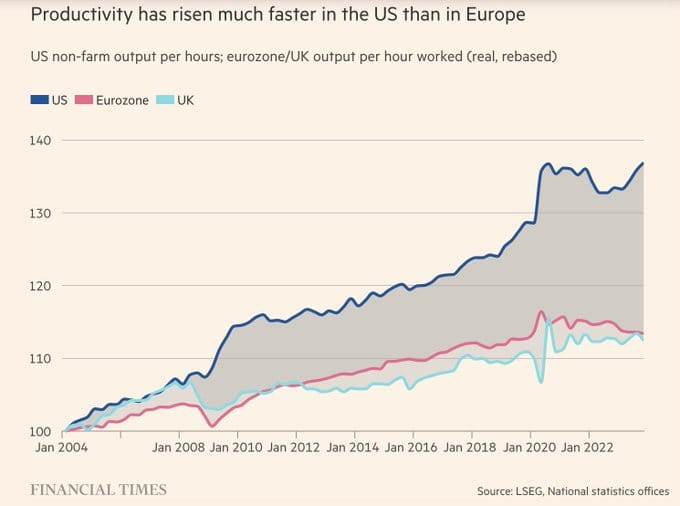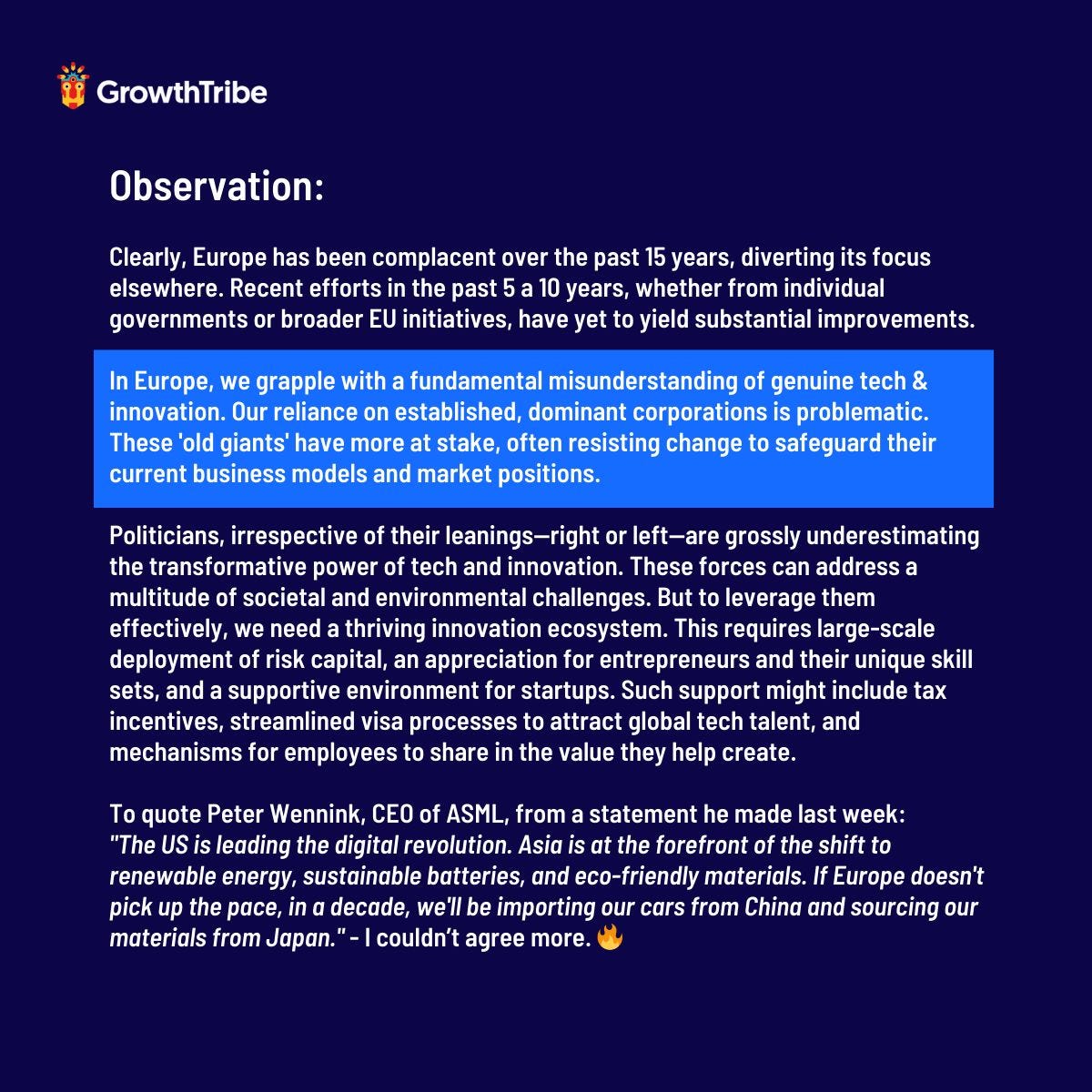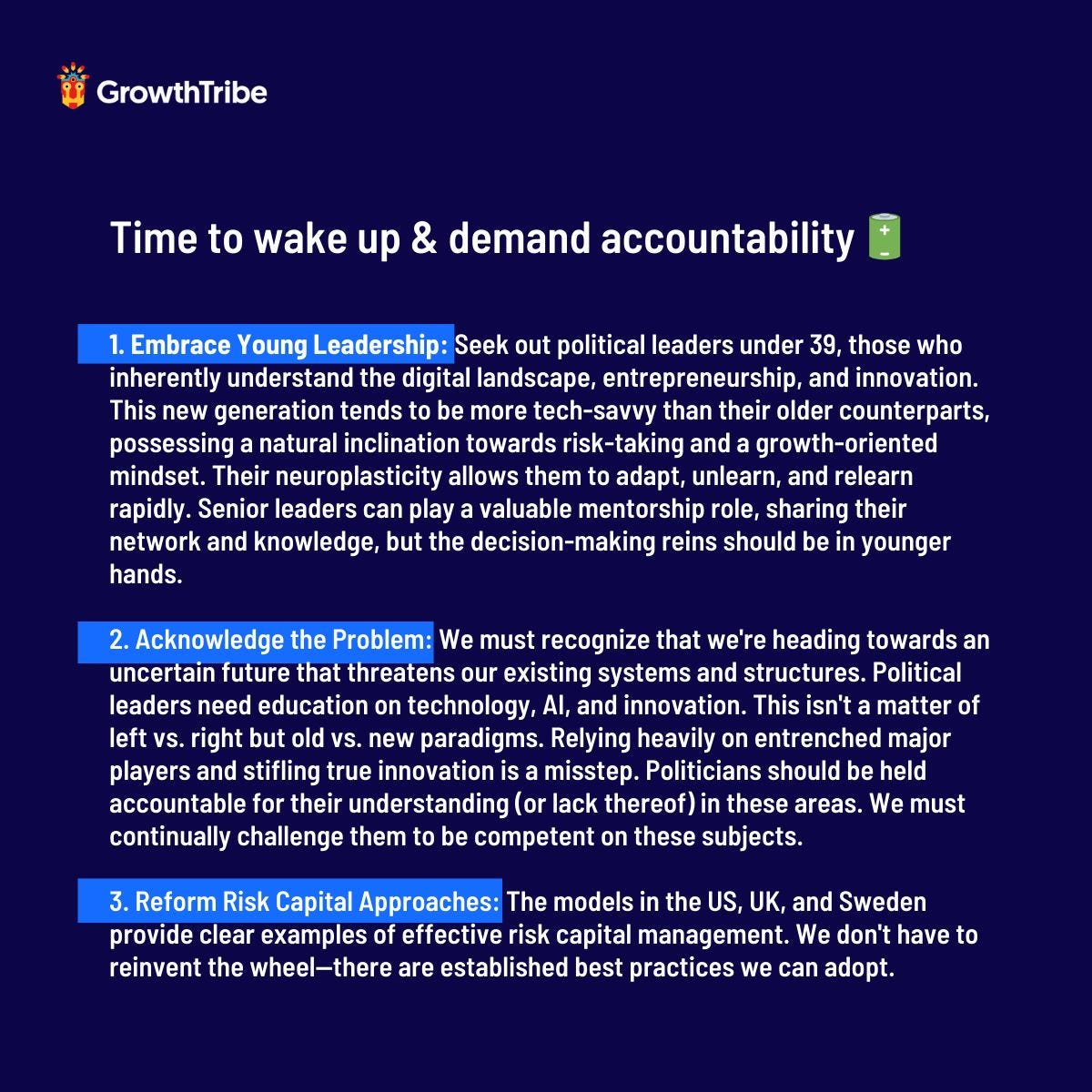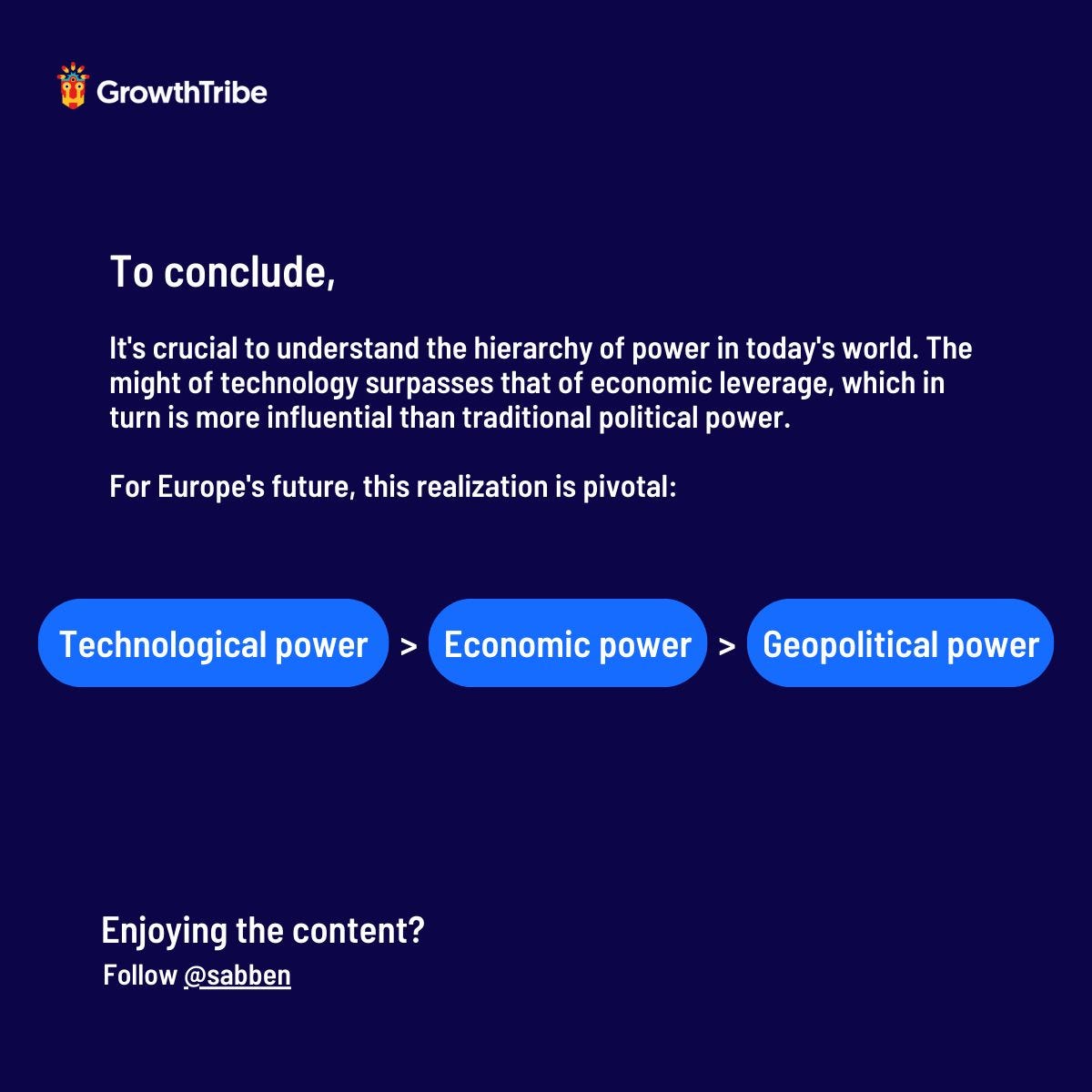Europe is in Decline: A Concerning Future Ahead. 📉🇪🇺
“In 2000, Europe had 41 of the biggest 100 companies. Now it only has 15 — a 63% decline in just two decades.” 😳 What happened? And why did Europe lose its pioneering spirit?
(This a copy of my linkedin post from October 3rd 2023, you can find here). A look back at what happened in the last 20 years and 7 graphs demonstrate Europe faces significant challenges in the next decade. 👉 See slider with 7 graphs. 📊 📉
Important insights:- The data suggests a future where Europe loses its economic edge to the US and Asia and, even more worryingly, loses its technological sovereignty, with all the implications that come with it. - Europe still reliance on established, dominant corporations is problematic. These 'old giants' have more at stake, often resisting change to safeguard their current business models and market positions.- Europe is doing "stuff" that has yet to yield any substantial improvements. This reminds me of the quote, "The biggest threat to success is a small success. Small steps that have no effect." I call this phenomenon "self-celebrating crowds."
It needs to stop.Time to wake up, Acknowledge the Problem & Demand Accountability:
1. Embrace Young Leadership: 🫅 Seek out political leaders under 39, those who inherently understand the digital landscape, entrepreneurship, and innovation. This new generation possessing a natural inclination towards risk-taking and a growth-oriented mindset. Their neuroplasticity allows them to adapt, unlearn, and relearn rapidly. Senior leaders can play a valuable mentorship role, sharing their network and knowledge, but the decision-making reins should be in younger hands.
2. Acknowledge the Problem: ☢ We must recognize that we're heading towards an uncertain future that threatens our existing systems and structures. Political leaders need education on technology, entrepreneurship, and innovation. This isn't a matter of left vs. right but old vs. new paradigms. And regulation alone is not the answer, it will slow down or even kill groundbreaking innovation. Secondly, relying heavily on entrenched major players and stifling true innovation is a misstep. Politicians should be held accountable for their understanding (or lack thereof) in these areas. We must continually challenge them to be competent in these subjects, not only be knowledgeable.
3. Reform Risk Capital Approaches: 💸 The models in the US, UK, and Sweden provide clear examples of effective risk capital management. We don't have to reinvent the wheel—there are established best practices we can adopt. To conclude, it's crucial to understand the hierarchy of power in today's world. The might of technology surpasses that of economic leverage, which in turn is more influential than traditional political power.
For Europe's future, this realisation is pivotal:
Technology power > Economic power > Geopolitical power. 🔋
What are your thoughts? Which of the 7 graphs do you find most shocking? Share your opinion in the comments. 📢
2009…
Sources:
https://www.wrr.nl/publicaties/rapporten/2023/09/14/goede-zaken
https://www.chartr.co/stories/2023-08-30-2-novo-nordisk-is-valuable-european-company
https://en.wikipedia.org/wiki/List_of_unicorn_startup_companies
https://twitter.com/search?q=%40sabben%20europe&src=typed_query




